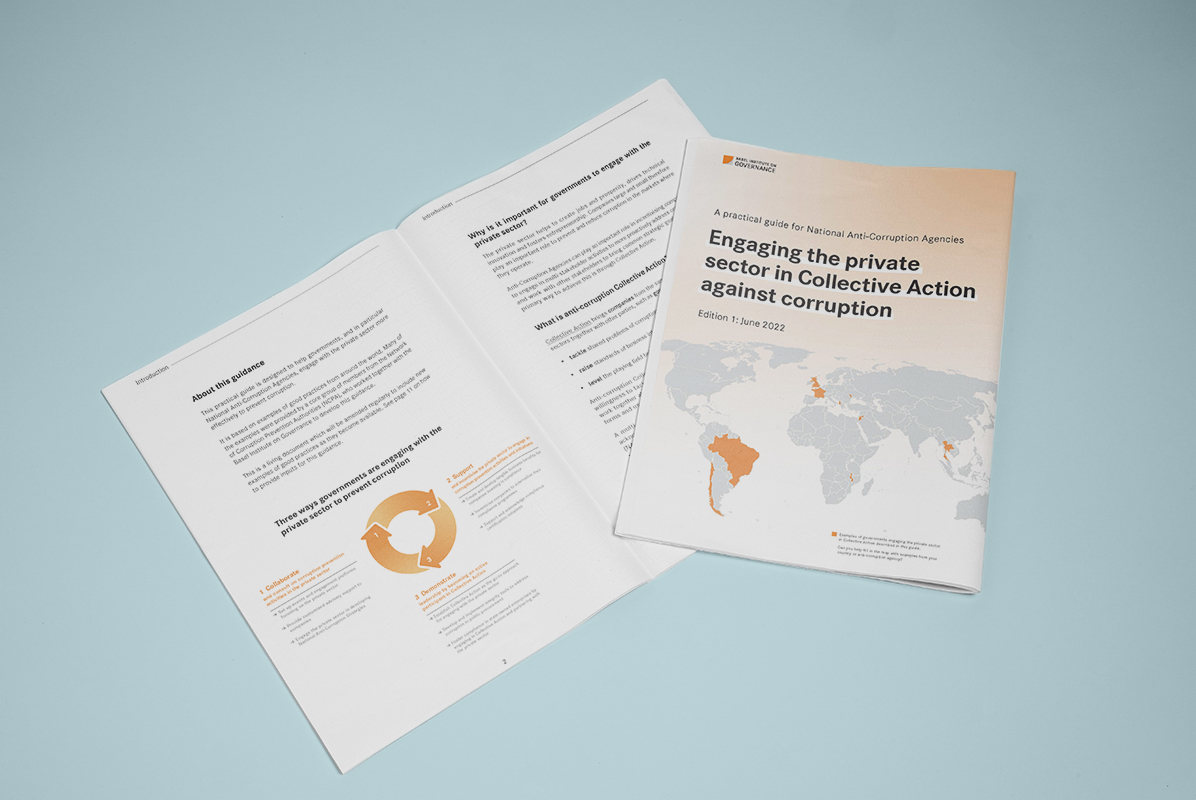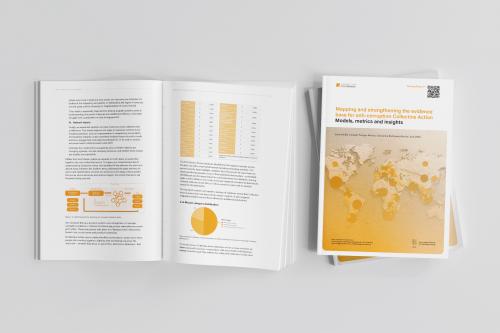New guidance for governments to engage business in preventing corruption

Companies and business associations play an important role in preventing and reducing corruption in the markets where they operate – something that governments also want to achieve.
So how can governments and the private sector work together better to raise standards of integrity and fair business in specific countries and industries?
To answer this, our Collective Action team has worked with the people on the front lines of governments’ corruption prevent efforts – anti-corruption authorities – to develop practical guidance with real examples.
Published today, the guidance was co-developed with members of the Network of Corruption Prevention Authorities (NCPA), of which the Basel Institute is an affiliated partner.
Three avenues, global examples
The user-friendly guidance document explains how governments and their anti-corruption agencies can engage with the private sector to prevent corruption in three ways:
- Collaborate and consult on corruption prevention activities in the private sector - by setting up events and platforms, providing advisory support, and engaging the private sector in developing national anti-corruption strategies.
- Support and incentivise the private sector to engage in corruption prevention activities and initiatives – by creating tangible business benefits for companies investing in compliance, incentivising companies to externalise their compliance programmes, and supporting compliance certification.
- Demonstrate leadership by becoming an active participant in Collective Action - by establishing Collective Action as the go-to approach for engaging with the private sector, implementing integrity tools in public procurement, and fostering compliance in state-owned enterprises.
Many of the members involved in the collaboration are at the forefront of efforts to engage business in anti-corruption activities, often through Collective Action or similar multi-stakeholder approaches.
The examples they provide cover France, Brazil, Malawi and others.
Conference discussions – exploring further
The first panel of our upcoming International Collective Action Conference will further explore this crucial topic – the importance of government engagement and support for Collective Action.
The panel “Tailwind for Collective Action” on 30 June features the Comptroller General of Chile, the Director General of the Independent Commission Against Corruption of Mauritius and the International Affairs Officer of the French Anti-Corruption Agency. Moderated by our Head of Compliance and Collective Action Gemma Aiolfi, the panellists will discuss their support for Collective Action and share experiences in translating commitments into action.
The speakers' experiences, along with the new guidance, will hopefully help governments progress from committing to using Collective Action to prevent corruption to actually using it to its full potential.
Learn more
Download the guidance here: Engaging the private sector in Collective Action against corruption
We are grateful to the NCPA members who contributed their time and expertise to the discussions and document. We also thank the Siemens Integrity Initiative for supporting both the Conference and our participation in developing the guidance with our partners at the NCPA.
The guidance will be updated on a regular basis to continue the discussion around government and private-sector engagement on issues of corruption. Contact Scarlet Wannenwetsch of our Collective Action team for more information or to contribute to future editions.



